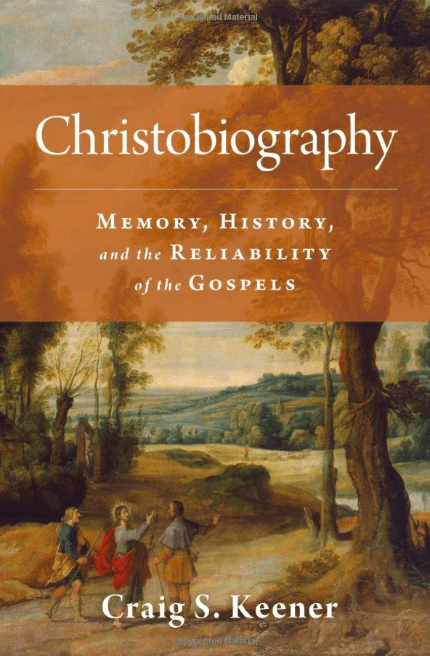 One of the best discussions I have observed, and participated in, about the Gospels of our New Testament is the discussion of genre. What kind of books are these? Are they biographies? histories? myths? fiction? sermons? early Christian discussions retrojected onto the life of Jesus? What were they? Inside this question is Are the Gospels unique in genre, a special kind of early Christian genre, or are they part of the ancient world’s already-existing genres?
One of the best discussions I have observed, and participated in, about the Gospels of our New Testament is the discussion of genre. What kind of books are these? Are they biographies? histories? myths? fiction? sermons? early Christian discussions retrojected onto the life of Jesus? What were they? Inside this question is Are the Gospels unique in genre, a special kind of early Christian genre, or are they part of the ancient world’s already-existing genres?
In his customary cautious and extensively-cited Craig Keener’s got another important book to offer us. It has a wonderful title: Christobiography: Memory, History, and the Reliability of the Gospels (#ad).
Join this blog in a series about this book, though we will not be able to detail all of his conclusions or even all the important ones.
Another factor that should be taken into account, however, is what sort of works the Evangelists were composing. If their goal was pure fiction (a view that scholars rarely suggest, but that is sometimes argued on a popular level), the overlap among their accounts seems difficult to explain. If they wrote mainstream ancient biography, this basic genre has implications, I will argue, for the expected range of both historical information and flexibility in presenting that information. Moreover, their composition within living memory of Jesus suggests that they probably still had significant information available when they wrote.
As we shall see, biographies in the early empire sought to preserve significant information about their subjects. At least with regard to characters from the hundred years or so preceding them, evidence suggests that they generally still had trustworthy sources available for much of their narrative. At the same time, biographers also wrote from various perspectives, with consequently varied emphases, and often exercised the flexibility that they felt they needed to tell coherent stories. Those familiar with Gospel synopses will recognize that the ranges of consistency and flexibility in other biographies from the period resemble the ranges also characteristic of the Gospels.
If we frame expectations for the Gospels according to the conventions of biographies in the early empire, the Synoptics meet these expectations. Their range of variation on points of comparison is neither surprising nor (for those wanting to learn about the historical Jesus) disconcerting, since, as in most parallel passages in the Synoptics (and, in my view, probably also John), ancient biographers sought to use the substance of their sources while feeling free to adapt details. Although approaching the Gospels in this way does not resolve all questions about details, it should offer an opportunity for more rapprochement among scholars of different epistemic persuasions.











